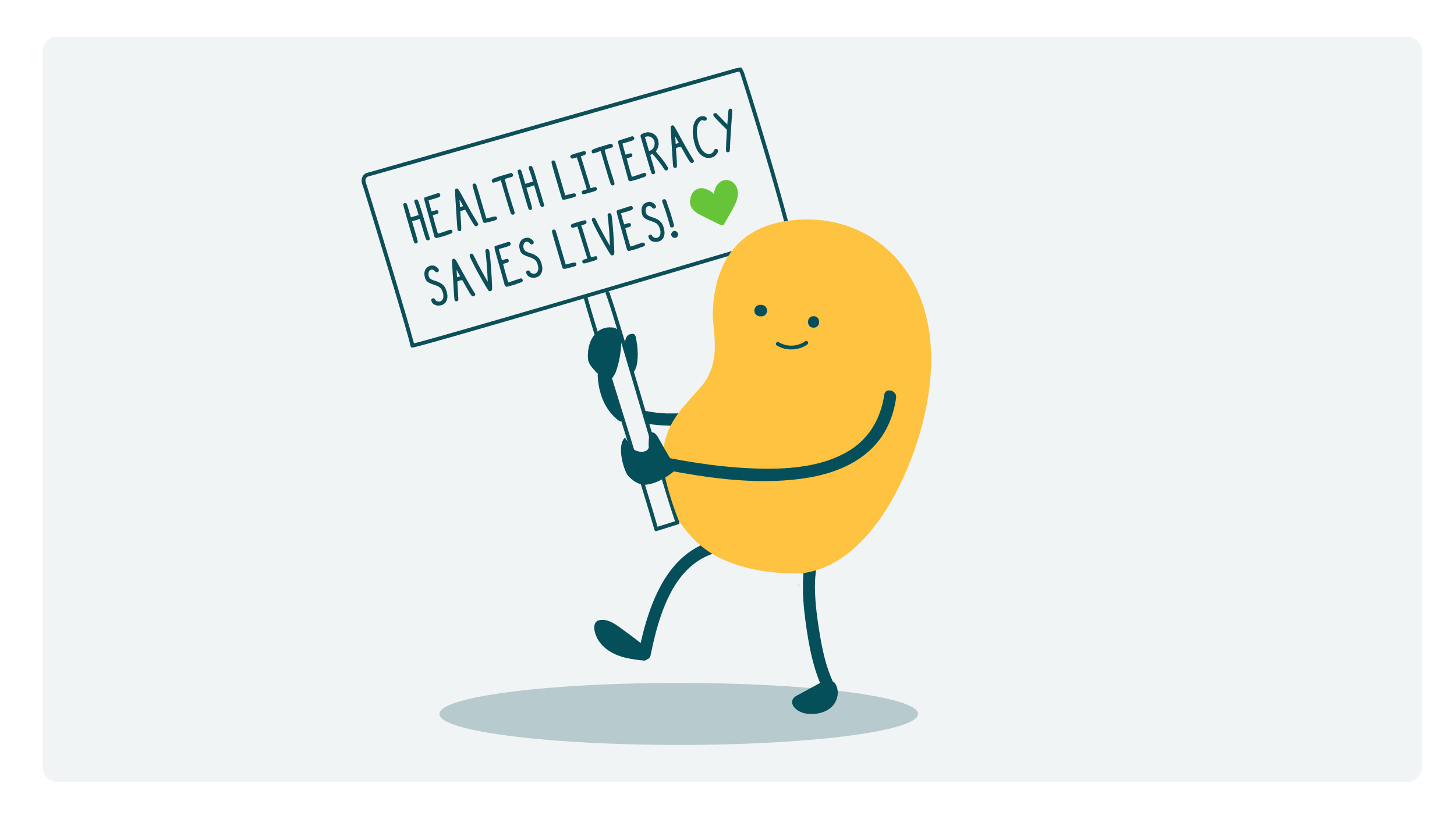
Here at We ❤️ Health Literacy HQ, communicating health information is the heart of our work. Regular readers of our blog may know that we try to keep it light when we can (with health literacy tips from Elmo or an ode to emojis, for example), but we always keep in mind why we do what we do: For some people, health literacy is literally lifesaving.
Take kidney disease. According to data from 2021, there are about 90,000 people on the kidney transplant waitlist, but only about 24,000 transplants happen each year. And you might assume that once a person is placed on the waitlist, all they have to do is sit tight until a kidney is available… right? But that’s not always the case — thousands of people die waiting for kidney transplants each year. People who urgently need a transplant simply may not be able to wait out the waitlist.
Some health organizations provide tips for people with kidney disease on how to launch their own campaign to find a living kidney donor — someone who’ll donate a kidney to them directly so they don’t have to stay on the waitlist. In these cases, the patient is often the one spreading the word on social media, talking to potential donors about the process, and coordinating with the transplant center — all while managing their health care.
Clearly, it’s not ideal to put people in the position of having to ask friends and family members for a life-saving organ. And this unfortunate situation reminds us just how critical health literacy is. Essentially, it seems people with kidney disease need superhero-level health literacy skills just to stay alive. Studies have shown that people with high health literacy skills are more likely to be considered for transplants and have better long-term health outcomes.
But here’s a thought: What if we designed health systems and health information so that people don’t have to have superhero-level health literacy skills to be healthy and well? There are certainly some big structural issues at play here. But as health communicators, we hope you see and feel the value of prioritizing health literacy in your work. This could look like:
- Designing easy-to-understand doctor’s office intake forms — and making them available in a variety of formats
- Using tools like decision aids to help people navigate tricky health decisions
- Trying the teach-back method to make sure people understand their next steps
- Communicating with empathy every time
The bottom line: For some people with kidney disease, health literacy can be the difference between life and death. As health communicators, we can help change that.
Browse recent posts